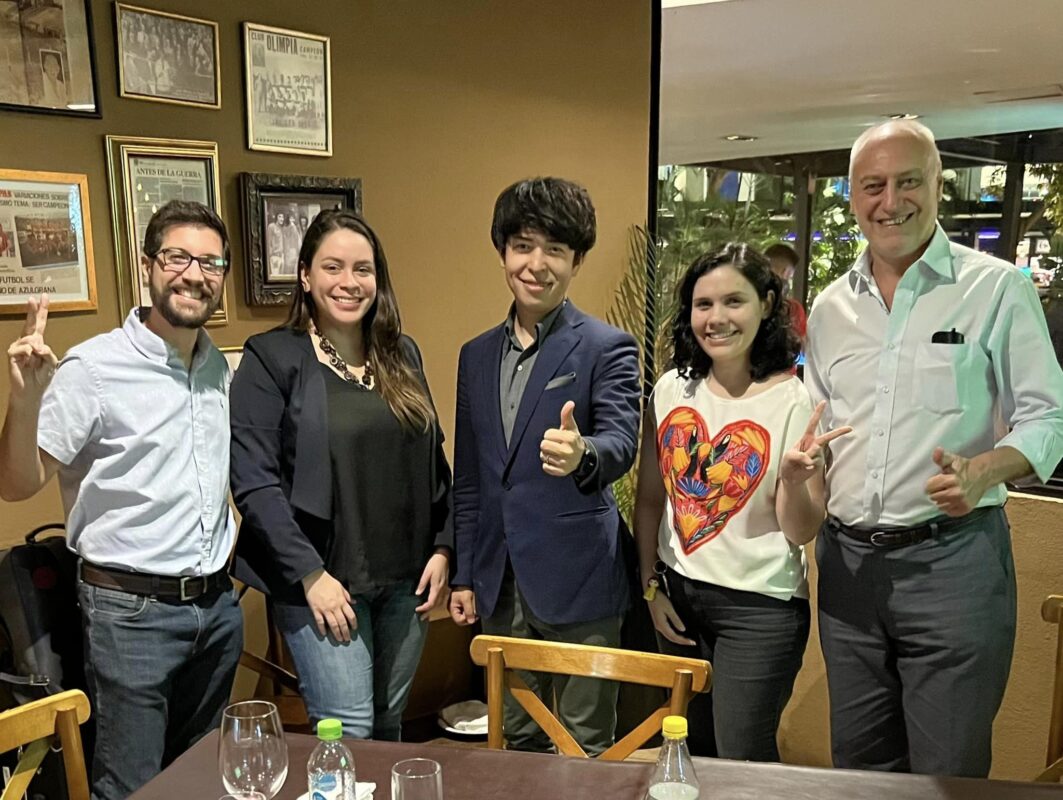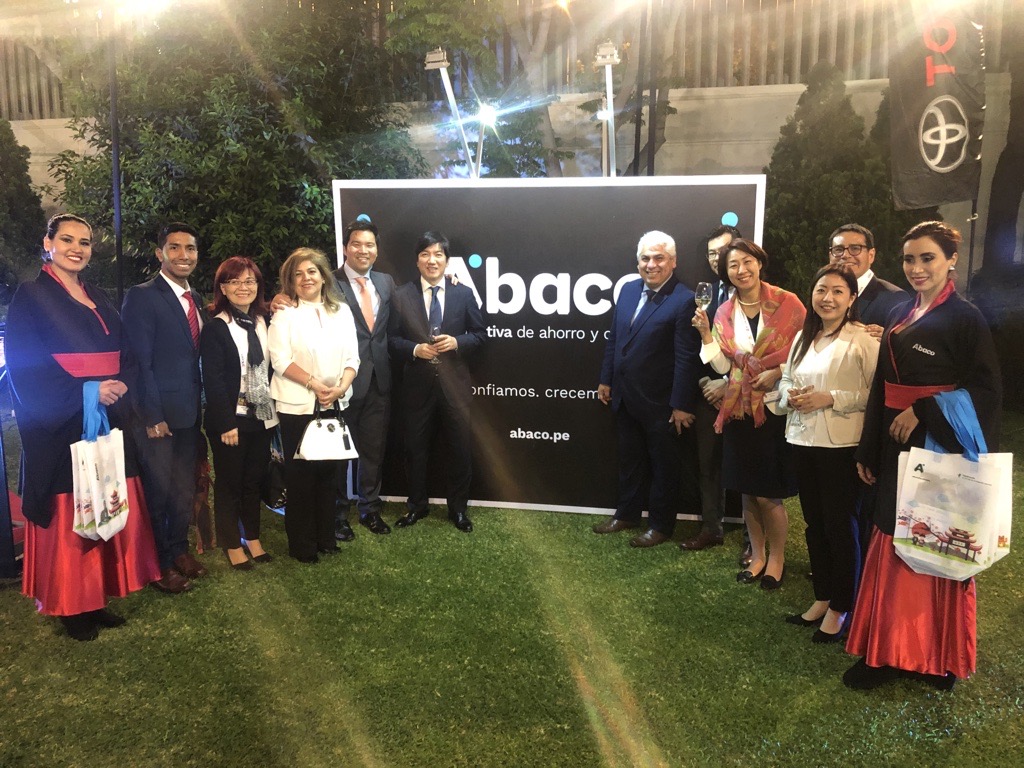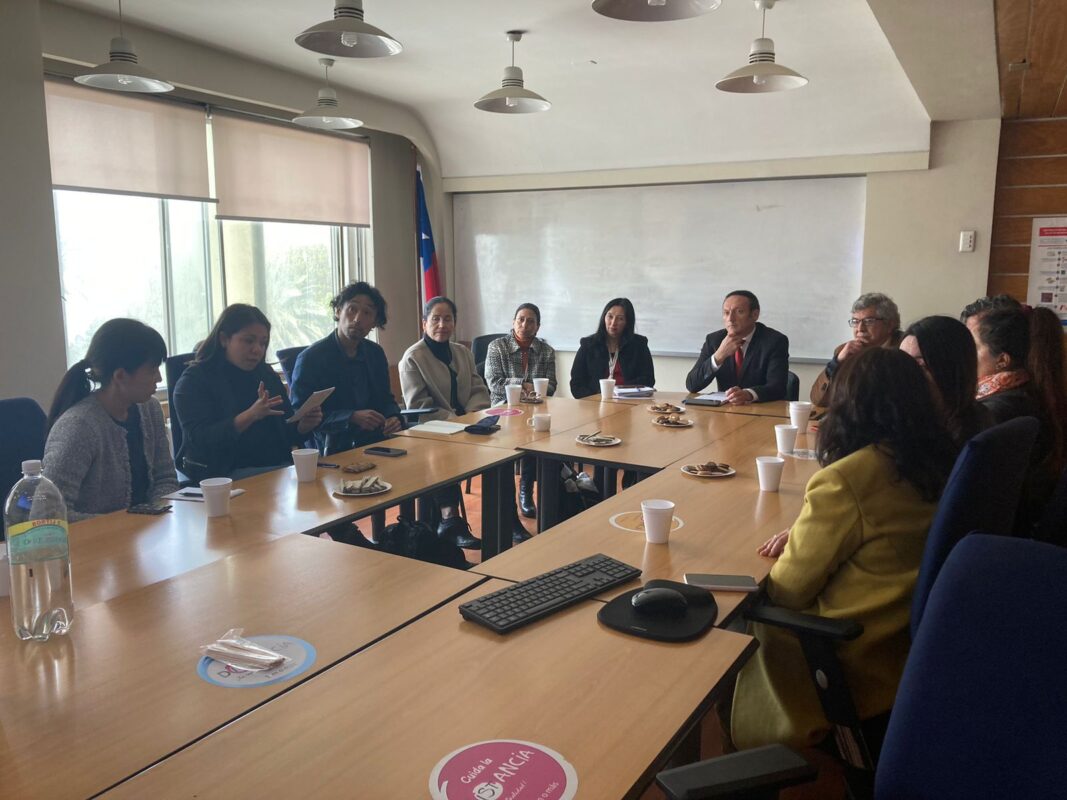
TSUBASA, an open innovation program, aims to contribute to the achievement of SDGs in Latin America and the Caribbean by combining the innovative businesses of Japanese start-ups with strong support from JICA and IDB Lab. Under the program, selected start-ups will receive various incubation and acceleration support from the Japan International Cooperation Agency (JICA) and IDB Lab, the innovation laboratory of the Inter-American Development Bank (IDB) Group, over a period of about six months in order to achieve commercialization. Depending on their progress, additional support from JICA and IDB Lab may be provided even after the end of the program period. In other words, TSUBASA has the potential to become a “runway” for start-ups taking flight towards the large-scale commercialization of their businesses.
So, how are the start-ups that have actually participated in TSUBASA progressing with their commercialization efforts following the conclusion of the six-month program and based on the paths they have chosen? In this article, we will look at some examples of how start-ups selected for the first edition of the program, “TSUBASA2021”, are currently developing their businesses.
What kind of support does TSUBASA offer again? The possibility of additional support even after the program ends.
TSUBASA takes applications from start-ups with business ideas aimed at contributing to the achievement of SDGs in Latin America and the Caribbean, and the companies selected from among the applicants go on to participate in a six-month “incubation and acceleration program” to prepare them for commercialization.
During this period, the selected companies are provided with various incubation or acceleration support. In TSUBASA2021, for example, participants worked to identify the countries in which to roll out their businesses, the development issues faced by said countries, and potential local partners, with support from JICA and IDB Lab, as well as other experts who have extensive knowledge of the region.
For instance, to make progress in commercialization, it is important to find local partners and to build a cooperative system, however, it would understandably be difficult for a Japanese start-up to achieve all of this on their own. Accordingly, the program leverages the local networks of JICA and IDB Lab to introduce potential partners and to hold discussions on the possibility of collaboration. This is another important area of support.
In addition, a mentoring program with experts is also offered periodically during the program period to help further polish ideas and provide input and information on the local economic and social situation. B Venture Capital, a venture capital firm with expertise in local social conditions and business, also provides mentoring within the TSUBASA program.
It is difficult for Japanese start-ups to obtain information and business know-how in Latin America and the Caribbean on their own, and in most cases, they have limited business experience to begin with. One of the main features of TSUBASA is to apply the above-mentioned support to clarify which country’s development issues the solutions proposed by each selected company will be able to contribute to the most. The program’s primary objective is to contribute to local development issues, and it is in this aspect of the support that the objectives of the program are reconciled.

Mr. Noro, Representative Director of DIVIC Corp., one of the selected companies, and “CIDIT,” a local Paraguayan NGO introduced by TSUBASA
The contents of the support are being tuned every year, and, for example, in TSUBASA2022, the second edition of the program, support for local travel expenses was also included on a trial basis. In addition, as part of making the trip from Japan, reports on the results of local consultations to the Headquarters of IDB Lab (in Washington, DC) and improvements to the accompaniment support system provided by JICA staff are also being made in the second edition. Going forward, the program will continue to consider ways to improve the support provided, while listening to the feedback received from the selected start-ups.
Thus far, we have concerned ourselves with the support provided during the TSUBASA period, but JICA and IDB Lab may also provide additional support on an individual basis after the end of the program period. In fact, many of the start-ups selected for TSUBASA2021, the first edition of the program, have already received such additional support and are working to commercialize their solutions.
Another feature of the program is JICA and IDB Lab’s provision of tailored support to the selected companies based on their business model. The two organizations complement each other in their start-up support, with IDB Lab providing support for B2B (business to business) or B2C (business to consumer) cases, and JICA providing support for B2G (business to government) cases.
Support received by the selected start-ups over the six month program, and their business development afterwards.
In light of the above, TSUBASA is not a program that is completed in six months, but rather a springboard providing companies with the opportunity to continue working toward commercialization even after the program ends. If anything, the case can be made that it is what happens after TSUBASA that is important.
In fact, since the end of the TSUBASA period, the selected start-ups have steadily progressed in their development, including some that have achieved commercialization. So, what specific developments are taking place? In this article, we would like to introduce four companies (DIVIC, Music Securities, Allm, and ad-dice) that were selected for TSUBAS2021, and how they have been working to commercialize their solutions locally after the end of the program.
■DIVIC has already started a programming business in Paraguay
DIVIC, a company that trains programming personnel and operates programming schools, has been selected to provide an online system for learning programming in Paraguay through negotiations with JICA and IDB Lab. Paraguay was chosen for multiple reasons. To start with, the Paraguayan government has identified the promotion of digitalization as one of the most important issues in its national strategy. Also, another project supported by IDB Lab with a similar theme to DIVIC’s was starting up at the same time, and synergy with the implementing agency of said project could thus be expected over the medium to long term. In addition, Paraguay is home to a relatively large Japanese community, which could be expected to support the project.
Through JICA, the company was introduced to the president of the local Japanese Chamber of Commerce and Industry and a lawyer’s office, to help confirm the situation surrounding IT and legal aspects of the country. IDB Lab introduced them to CIDIT, a local NGO, via a representative of their Paraguay office. The decision was made to have CIDIT act as the local implementing agency for the project.
The support thus far described all happened within the TSUBASA period, but what has happened since the program ended? From the conclusion of the program to date, the company has made steady progress in commercializing their business idea. With the support of IDB Lab ($300,000), DIVIC is currently in the demonstration phase of their online system for learning programming in Paraguay, aimed at providing instruction to a maximum of 400 young people over the course of three years. Now in its first year, nearly 100 participants are currently in the process of learning through the system.
The first step going forward is to produce graduates of the above mentioned learning program and establish a track record. The company plans to reduce drop-out rates and increase the number of local graduates, which will lead to more participants in the next and subsequent years. The second step is to develop human resources capable of playing an active role in the local community, with graduates of the learning program finding work at major IT companies or starting their own businesses. This will lead to a growing number of people that wish to participate in the learning program locally. In the third step, the company will work to upgrade their framework, including monetization, to ensure the continuity of the business.
■Music Securities pivoted to a business different from their original idea
When Music Securities applied to TSUBASA, the idea they submitted was that of using crowdfunding to support the financial needs of musicians and others involved in creative activities in the Latin American region. However, over the course of the aforementioned mentoring and polishing of ideas, the company pivoted to use their participation in TSUBASA to develop a business that provides financial support to small and medium-sized businesses through crowdfunding, based on a past idea the company had discussed with ABACO, a local implementing agency, for a pilot program in Latin America to support small and medium-sized businesses through a micro-investment crowdfunding platform.
Furthermore, around this time, a crowdfunding law was enacted in Peru, influencing the decision to do business in the country. After receiving support from IDB Lab and other organizations, ABACO was selected as the local implementing agency, and the company achieved the commercialization of a demonstration project. In the case of Music Securities, it can be said that the identification of countries to roll out in, their social issues, and potential partners all took place during the course of the program.
From the conclusion of TSUBASA to date, the company has proceeded to carve out a solid position for themselves. Specifically, IDB Lab’s support for ABACO was finalized ($592,600) and the first payment of funding was carried out in June of this year. During this time, the representative from IDB Lab remained available at all times to assist with the contractual aspects of the project, and worked together with the company as a team.
And this year, Music Securities and ABACO decided to join together in establishing a joint venture company to operate a local micro-investment crowdfunding platform. The company is currently in the process of selecting a CEO and plans to demonstrate their crowdfunding platform going forward. Once the structure is in place, they will enter the phase of establishing their innovative financial support tools for micro-investment in the local market.

Music Securities Inc. and ABACO, the local implementing agency
■Allm is taking on the challenge of “diabetic retinopathy,” a serious issue in Chile
Allm, a provider of medical ICT solutions, originally envisioned an ophthalmoscopy solution for Brazil, but chose instead to commercialize a demonstration project in Chile based on the support they received during TSUBASA. In discussions with the IDB Group’s staff in charge of the public sector (Health Division, Department of Social Affairs) held to further deepen their understanding of local development issues, it was determined that the company’s solution would be a good match for the need for early detection of diabetic retinopathy and mammography for breast cancer found among the social issues of Chile.

Discussions held to understand local social issues (Allm Inc.)
In Chile, statistics show that about 25% of diabetic patients suffer from diabetic retinopathy, and it can take up to 90 days for a suspected patient to be diagnosed. For breast cancer on the other hand, mammography, in contrast to ophthalmoscopy, was covered by the public system, and so the company chose to deploy an ophthalmoscopy solution for the early detection of diabetic retinopathy, the need for which is more urgent. It can be said that the business content and the target country were identified while gathering local information.
What progress has the company made to date after having gone through these processes in TSUBASA? The company, together with its local subsidiary Soluciones Tecnologicas e Informaticas Chile-Japon SpA, has started a demonstration project in Chile with the support of IDB Lab ($308,000).
Specifically, they are working on a project for the early detection of diabetic retinopathy in the Valparaiso and San Antonio regions of Chile, and are currently procuring equipment for its implementation. In addition, a project manager has been hired and is preparing for scheduled training within the project.
Although the implementation of the project was slightly delayed due to events such as a change in the authority of local health services and two changes in the members who were coordinating the project, these events fall within the scope of what is normal in the management process of health services, and the project is now said to be underway with new members.
■ad-dice wants to reduce maternal tragedies with IoT and AI
In their application, ad-dice stated their wish to put their wearable IoT-based AI healthcare service to use in solving development issues in the Latin America and Caribbean region. Subsequent discussions between JICA and IDB Lab led to the idea of providing a solution that would contribute to reducing maternal mortality, one of the SDGs, by combining IoT-based body data measurements and AI analysis based on the company’s proprietary technology (SoLoMoNR Technology: Patent No. 6302954).
In so analyzing maternal mortality data for Latin America and the Caribbean, it was found that Bolivia had a high mortality rate, and an was investigation commenced with Bolivia as the target. The active involvement of staff from IDB Lab’s Bolivia office led to a partnership with CIES, a local NGO. In addition, the company also sought future expansion in Paraguay and met with members of the Japanese Chamber of Commerce and Industry there through introduction via JICA.
After TSUBASA, ad-dice plans to start a demonstration project in Bolivia in the near future. With the support of IDB Lab ($400,000), CIES was contracted as the implementing agency for the project, and the future conducting of a demonstration project is expected whereby pregnant and nursing women in Bolivia use the wearable device and observe the impact on their health during pregnancy.
During the contract process with CIES, both JICA and IDB Lab made full use of their local contacts and followed up on the progress towards finalizing the contract.
The company is also considering hiring Japanese-speaking personnel living in Latin America to facilitate smooth business operations with local partners, and has plans for the future to use this project as a foothold for further business expansion in the region. They are beginning to look at long-term business development.
TSUBASA as a step to further advance commercialization business
Situated on the “other side of the world” from Japan, many Japanese businesses find it difficult to imagine the Latin America and Caribbean region as a business setting. However, it is a region with various development issues, which is precisely why it offers so many business opportunities for start-ups. Moreover, each of these challenges are deep-rooted and the need for and significance of solutions is great. TSUBASA is a program designed to take on challenges in this region, and to encourage Japanese start-ups to take on new challenges while helping them overcome such concerns as the distance from Japan and lack of information on the region.
In fact, looking back at the progress of the four companies mentioned above, it is clear that each used the program as a stepping stone to continue making steady progress with commercialization and the realization their business after the program’s conclusion, having first made use of the support provided during the TSUBASA program period to lay down the necessary groundwork of identifying their target countries and the development issues faced there, and searching for potential local partners.
The six months of TSUBASA truly functions as a “runway” for polishing up business ideas aimed at contributing to the achievement of SDGs in Latin America and the Caribbean, with a world of possibilities for further development opening up ahead. The four companies mentioned in this article were selected for the first edition of the program, but the start-ups applying for the second edition, TSUBASA2022, and the latest edition, TSUBASA2023, to be held this year, will surely have the same potential to make great strides in their respective businesses.

